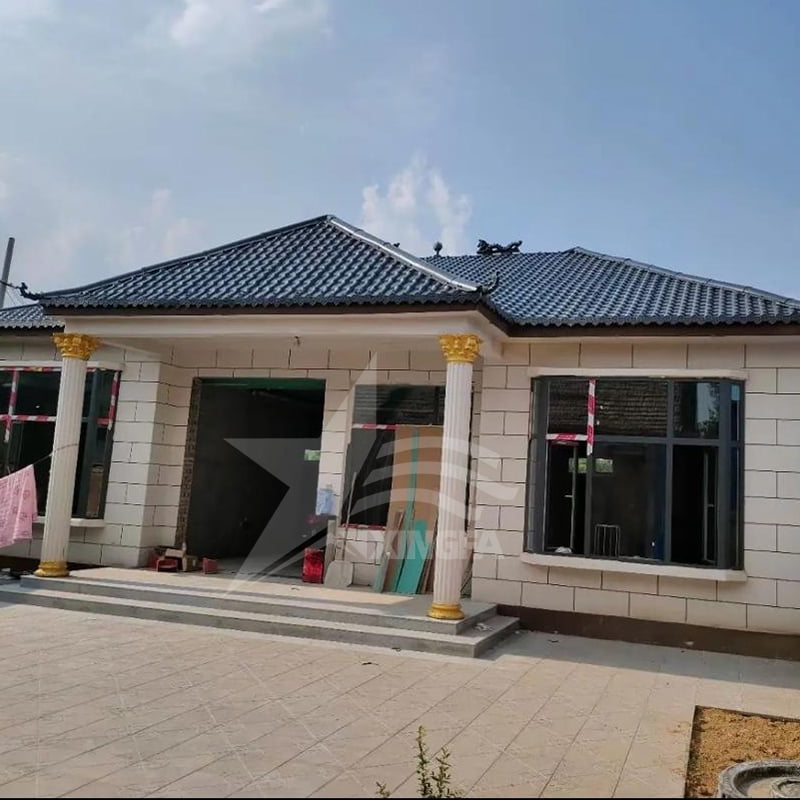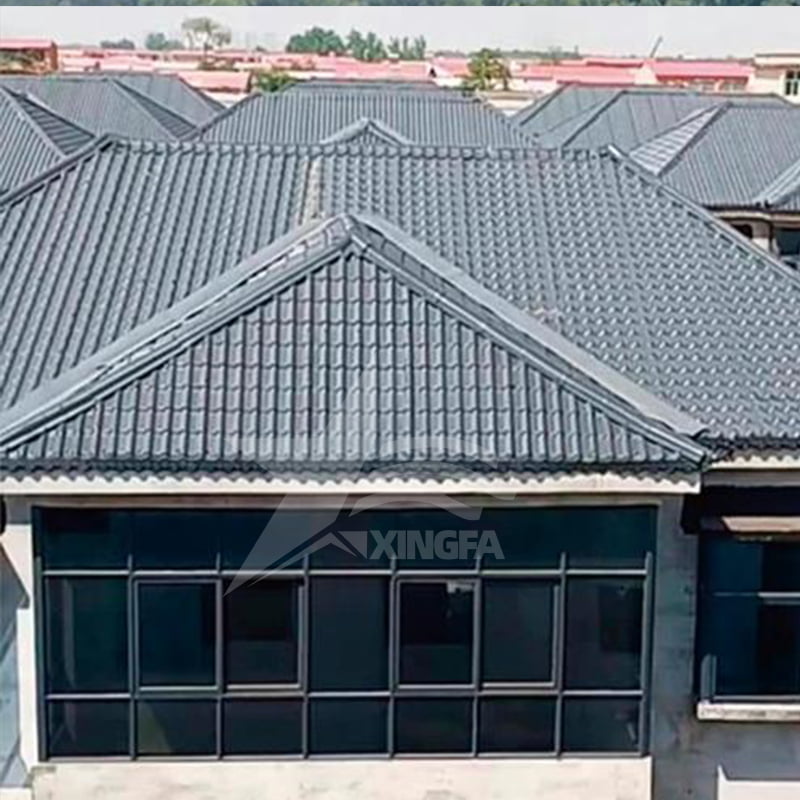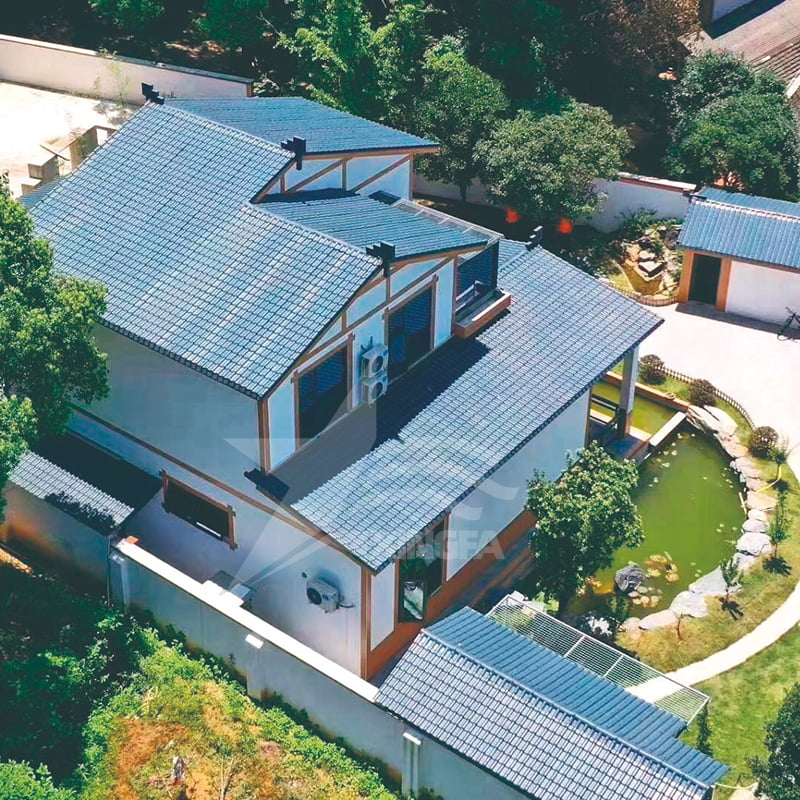Synthetic resin tiles are a new type of building material developed using advanced chemical technology. High-quality synthetic resin tiles can be used sustainably for over 25 years. However, the actual lifespan of resin tiles may be influenced by factors such as the environment and climate. Once signs of aging appear, replacement should be considered promptly. So, how can we determine the degree of aging of resin tiles?

- Fading, cracking, spotting, and powdering: If resin tiles show noticeable signs of fading, cracking, spotting, or powdering, it indicates that the tiles may have aged.
- Strength and toughness testing: The strength of resin tiles can be evaluated through experiments such as free-falling steel ball tests, low-temperature impact tests, and freeze-thaw cycle tests. If damage or cracking occurs during these tests, it may be a sign of aging.
- Noise reduction and load-bearing performance: Resin tiles have excellent load-bearing and noise reduction characteristics. If raindrops can be clearly heard hitting the tile surface during rainfall, or if cracking sounds occur when stepped on, it may indicate that the resin tiles have aged.

According to a weathering test report conducted by the National Chemical Building Materials Testing Center for 8000 hours, the actual service life of synthetic resin tiles is equivalent to over 25 years. After artificial accelerated aging experiments, resin tiles should not exhibit severe fading, cracking, spotting, or powdering. If these conditions arise, it can be concluded that the resin tiles have aged. Purchasing high-quality resin tiles can effectively resist aging, prolong their lifespan, and prevent frequent occurrences of aging phenomena.

